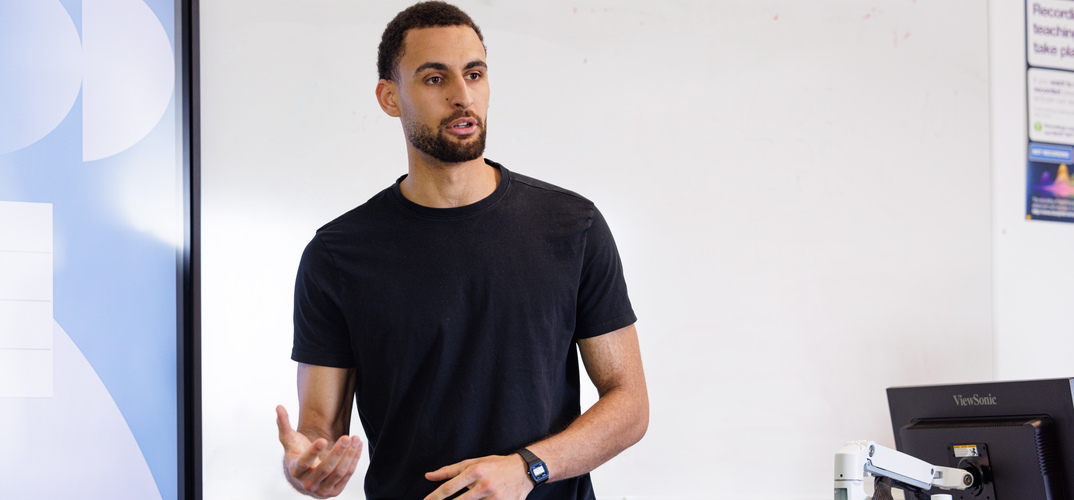The myths of body language (and why you shouldn't worry about them)

There are lots of myths about body language, but should we be concerned about how much information we’re giving away about ourselves, and can we do anything about it?
Introduction
As humans, we’re very good at reading people, and it’s important that we are. However, if you’ve spent any time listening to a “body language expert”, you might think that it’s possible to read people like a book; that, by simply glancing at someone, we can find out exactly what they’re thinking, what they’re feeling, and even whether they’re lying to us. After all, we leak all sorts of information about ourselves non-verbally, right?
Well, not exactly.
Myth #1: 93% of our communication is nonverbal
You may well have heard of the statistic that “93% of everything we communicate is nonverbal”. When people hear this, they’re often surprised and don’t quite believe it. As it turns out, they’re right not to. This myth originally came from a series of studies from a psychologist, Albert Mehrabian. He gathered some people around to listen to a person speak, and then asked them how they thought this person was feeling. This person, however, only said a single word. That’s it. One word.
Now, in that situation – that really specific situation – yes, you could argue that 93% of what that person communicated was nonverbal, simply because there wasn’t an awful lot of verbal content to go on. However, everyday conversations aren’t really like that; when we talk to people, we would generally say more than a single word in a conversation with them. Because of this, we cannot apply the findings of this study to everyday interactions and assume then that 93% of what we communicate to everyone is nonverbal.
If you don’t believe me, try watching a film without any sound or subtitles. If you can understand 93% of the plot, you’re doing extremely well. While our nonverbal behaviour can be very useful in communicating supplementary information to other people, nothing really beats verbal communication. If you want to communicate something to someone, talking to them is an excellent way of doing it.
Really, the message here is that: if you’re concerned that people are reading all sorts of things about you without you realising, then don’t be, because they probably can’t!
Myth #2: Power posing makes us look more confident
Quite often, people will take a finding from a study and apply it to everyday situations when it’s not really appropriate to do so. Another good example of this came from a study by Carney, Cuddy & Yap (2010) on power-posing. Back then, the authors found that just standing or sitting in a power pose caused people in their study to feel more confident; they took more risks in gambling tasks, reported feeling more powerful, and even had lower stress (cortisol) levels. Everyone was amazed.
As soon as people had read about this study, they started telling others that they should immediately get themselves into power poses to make them feel confident, and that this would help them in lots of different ways, such as performing better in job interviews. However, just before you stride into your next job interview like Thor, you might want to consider the context of these findings first.
A series of replication studies found that the original findings were not quite as straightforward as they seemed. For instance, in a study published with fellow University of Hertfordshire colleagues in 2015, we took photographs of people sitting and standing in different poses and showed them to other people. Firstly, we found that those in the high-power poses were considered by others to be more confident than those in the low-power poses (nothing too surprising there). However, we went further; we also asked people to stand in a neutral pose (i.e., how they would stand normally, without trying to look more or less powerful) and it was when people were in those poses that they were rated as being most confident.
There’s a point to this: we can try to override our body language if we want to, but it can sometimes backfire on us. Sitting or standing in a power pose that feels unnatural to you can make you feel a bit awkward and uncomfortable (maybe even a bit silly), and people tend to notice that. Our body language is natural, and we shouldn’t try to take too much control of it.
So, in summary, try not to stress too much about your body language. Your body language is automatic, spontaneous, and unique to you. If you want to portray the best version of yourself, nothing beats just being yourself!
Author
Senior Lecturer in Psychology, Dr Daniel Gurney.